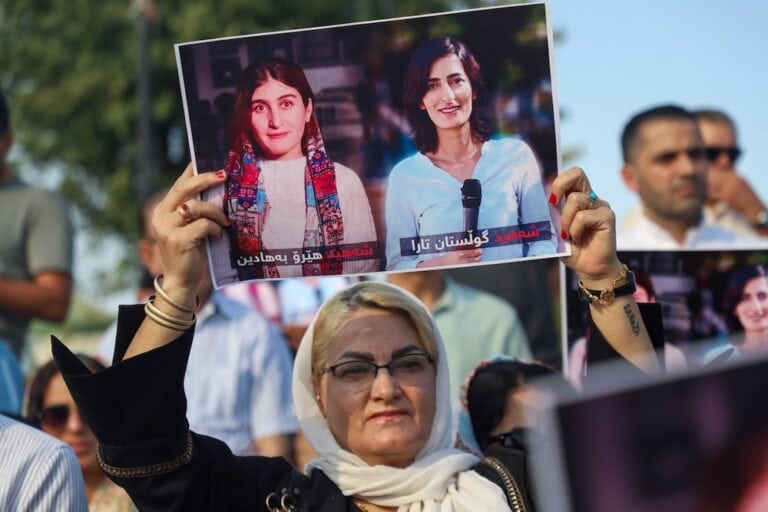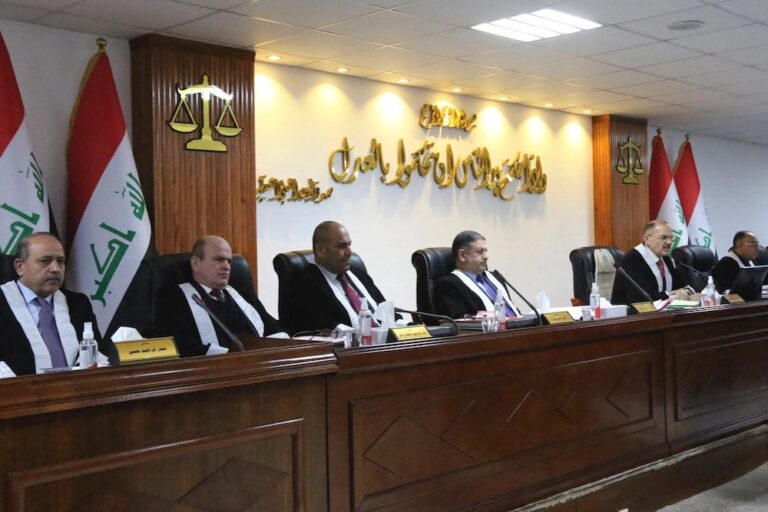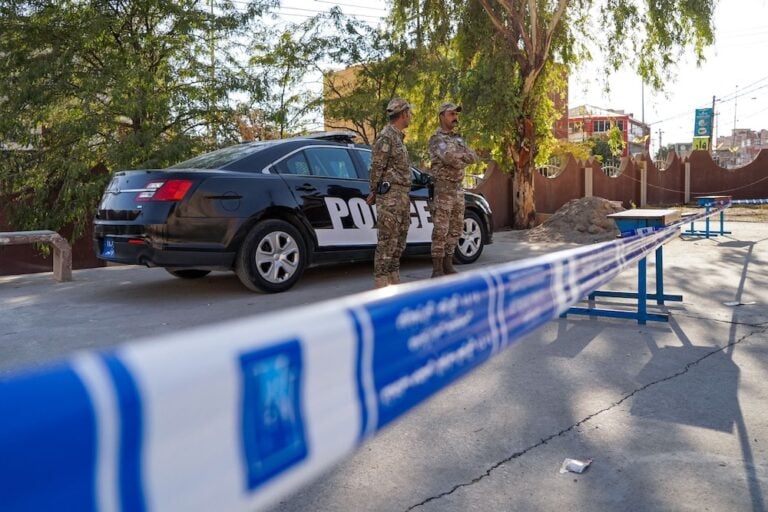A new report by the Gulf Centre for Human Rights (GCHR) documents how in the absence of effective legal mechanisms holding perpetrators accountable, Iraqi civil society activists continue to face torture in detention.
This statement was originally published on gc4hr.org on 21 March 2022.
This report issued by the Gulf Centre for Human Rights (GCHR) documents over a dozen cases of torture in Iraqi prisons, which are described as some of the most horrific prisons in the world, where continuous torture practices take place in the absence of any effective government measures to prevent or at least limit them.
Iraq suffers from the absence of the necessary legislation to combat torture and hold accountable the perpetrators of crimes against prisoners and other citizens, including civil society activists, despite the fact that Article 333 of the Iraqi Penal Code (Act No. 111 of 1969) prohibits it. The law stipulates that, “Any public official or public servant who tortures or orders the torture of an accused person, a witness or an expert in order to compel him or her to confess to an offence, make a statement or provide information, or to withhold information or give a particular opinion in respect thereof, shall be liable to imprisonment. The use of force or threats shall be deemed as tantamount to torture.”
Undoubtedly, this article of the Penal Code cannot be considered sufficient to stop or combat torture, as Iraq is still one of the countries that have not yet ratified the Optional Protocol to the Convention against Torture and Other Cruel, Inhuman or Degrading Treatment or Punishment (OPCAT). The first article states, “The objective of this Protocol is to establish a system of regular visits by independent international and national bodies to places where persons are deprived of their liberty, with a view to preventing torture and other cruel, inhuman or degrading treatment or punishment.”
In a report issued in 2015, the Iraqi High Commission for Human Rights (IHCHR) confirmed that national legislation does not include a definition of torture that is fully in line with Article 1 of the Convention against Torture and Other Cruel, Inhuman or Degrading Treatment or Punishment. The Commission also mentioned in its report that Iraqi legislators contented themselves with providing an implicit description of torture in the Iraqi Penal Code (Act No. 111 of 1969), and that the Commission considers that the definition provided by the Criminal Court Law does not agree with the definition contained in the Convention against Torture, as it considered it narrowing the scope of criminal liability.
In 2019, the IHCHR indicated the weakness of the measures taken by the Iraqi government and parliament to implement the recommendations related to the concluding observations issued by the Committee against Torture (CAT), as well as the recommendations contained in the reports of the IHCHR related to prisons and pre-trial detention facilities, especially with regard to achieving the requirements of a fair trial, providing justice to the victims of the crime of torture, providing reparation and prosecuting those responsible for it.
The absence of legislation and executive procedures that limit the torture practices carried out by some security forces has led to their persistence in torturing prisoners, whether they have been convicted or not. In addition, there is a clear reluctance on the part of successive Iraqi governments that prevented accession to international conventions and protocols against torture, which means that the country will face great challenges in reforming prisons, and the risk of torture turning from individual cases to a systematic practice.
Torture has been outlawed in the Iraqi Penal Code (Act No. 111 of 1969). In addition, the Coalition Provisional Authority Order No. (7) in Article (3) Penalties, within Paragraph No. (2), stipulates the following: “Torture is prohibited and cruel treatment or degrading or inhumane punishment are prohibited.” All of this is marred by major gaps and the need for a new legal formulation that contributes to the protection of all citizens, and in particular detainees and prisoners, from all kinds of torture.
GCHR documented the case of Ali Al-Jubouri, whose wife disappeared on 12 April 2021. He was arrested two months after her disappearance and falsely accused of her murder, after he appeared in a television programme in which he confessed to this crime. On 18 September 2021, his wife returned, and he was released three days after her return.



